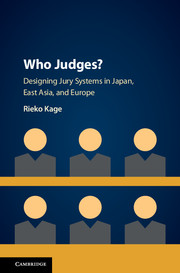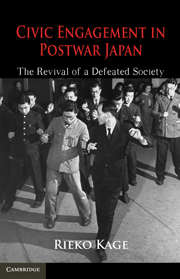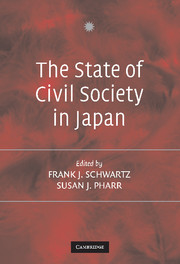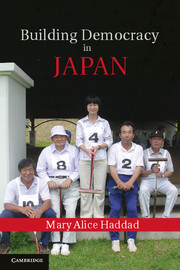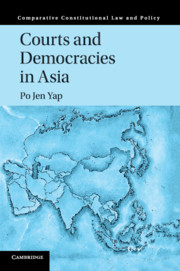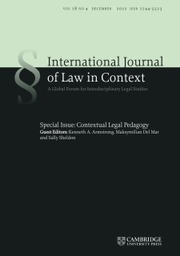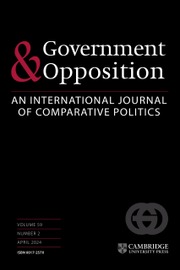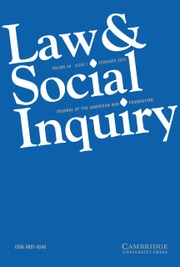Who Judges?
Designing Jury Systems in Japan, East Asia, and Europe
$87.99 (C)
- Author: Rieko Kage, University of Tokyo
- Date Published: November 2017
- availability: Available
- format: Hardback
- isbn: 9781107194694
$
87.99
(C)
Hardback
Other available formats:
Paperback, eBook
Looking for an examination copy?
If you are interested in the title for your course we can consider offering an examination copy. To register your interest please contact collegesales@cambridge.org providing details of the course you are teaching.
-
The delivery of justice is a core function of the modern state. The recent introduction of jury/lay judge systems for criminal trials in Japan, South Korea, Spain, and perhaps soon Taiwan represents a potentially major reform of this core function, shifting decision making authority from professional judges to ordinary citizens. But the four countries chose to empower their citizens to markedly different degrees. Why? Who Judges? is the first book to offer a systematic account for why different countries design their new jury/lay judge systems in very different ways. Drawing on detailed theoretical analysis, original case studies, and content analysis of fifty years of Japanese parliamentary debates, the book reveals that the relative power of 'new left'-oriented political parties explains the different magnitudes of reform in the four countries. Rieko Kage's vital new study opens up an exciting new area of research for comparative politics and socio-legal studies.
Read more- A path-breaking study on the politics of reforming judicial institutions in developed democracies
- Appealing to students and academics interested in the countries of Japan, Taiwan, South Korea, and Spain, and in comparing their politics and legal systems
- The first book to offer a systematic comparison of the politics of jury or lay judge system reforms with in-depth theoretical analysis and detailed case studies, including quantitative data
Reviews & endorsements
‘In this meticulous and elegant book, Kage uncovers the logic of the new role for juries in the judicial systems of Japan, South Korea, Taiwan, and Spain. Her close comparisons over time and across cases allow her to understand why a country may choose to inaugurate a role for lay juries, and why and how jury systems vary. The patterns are best explained, Kage finds, by the preferences and relative power of ‘new left' parties seeking to expand citizen participation in politics. This is theoretically-grounded empirical work at its best.' Frances Rosenbluth, Yale University, Connecticut
See more reviews‘This brilliant book offers a thoughtful, creative, and original analysis of lay participation in the criminal justice process. Kage, a rising star in the discipline of political science, is interested in understanding why a growing number of countries have invited the public to participate in criminal trials, and how such participation has influenced the power of judges and the treatment of criminal defendants. Her analysis, which focuses on Japan and includes significant research on Taiwan, Korea, and Spain, is a tour de force of comparative scholarship – historically rich, quantitatively and qualitatively sophisticated, and analytically laser-sharp. Who Judges? redefines the standard for work at the intersection of law and politics, and is indispensable reading for anyone interested in contemporary Japan, comparative politics, and public law.' Eric Feldman, University of Pennsylvania
'This book is an extremely valuable addition to global jury studies and makes a significant contribution to the sociopolitical analysis of varied democratic systems of citizen participation in criminal justice proceedings.' Hiroshi Fukurai, The Journal of Japanese Studies
'In sum, Kage’s book is highly recommended especially for researchers and policymakers interested in empirically comparing law reform, politics, justice systems, or criminology, particularly in relation to Japan, but also other parts of East Asia and one part of Europe.' Luke Nottage, Asian Journal of Law and Society
'Kage’s book will become a touchstone for studies of Japanese legal reform as well as for broader accounts of the politics of lay participation.' Tom Ginsburg, Social Science Japan Journal
Customer reviews
Not yet reviewed
Be the first to review
Review was not posted due to profanity
×Product details
- Date Published: November 2017
- format: Hardback
- isbn: 9781107194694
- length: 276 pages
- dimensions: 235 x 155 x 19 mm
- weight: 0.52kg
- contains: 25 b/w illus. 19 tables
- availability: Available
Table of Contents
1. Introduction
2. Theoretical framework: participation and partisan politics
3. The distribution of cases
4. The history of the lay judge system debate in Japan up to 1996
5. Bringing the lay judge system back in, 1997–2004
6. Setting the agenda: new left-oriented parties and deliberations in the Japanese parliament
7. Proposals for lay participation in the Republic of China
8. Introducing jury systems in South Korea and Spain
9. The impact of new lay judge systems
10. Conclusions.
Sorry, this resource is locked
Please register or sign in to request access. If you are having problems accessing these resources please email lecturers@cambridge.org
Register Sign in» Proceed
You are now leaving the Cambridge University Press website. Your eBook purchase and download will be completed by our partner www.ebooks.com. Please see the permission section of the www.ebooks.com catalogue page for details of the print & copy limits on our eBooks.
Continue ×Are you sure you want to delete your account?
This cannot be undone.
Thank you for your feedback which will help us improve our service.
If you requested a response, we will make sure to get back to you shortly.
×
